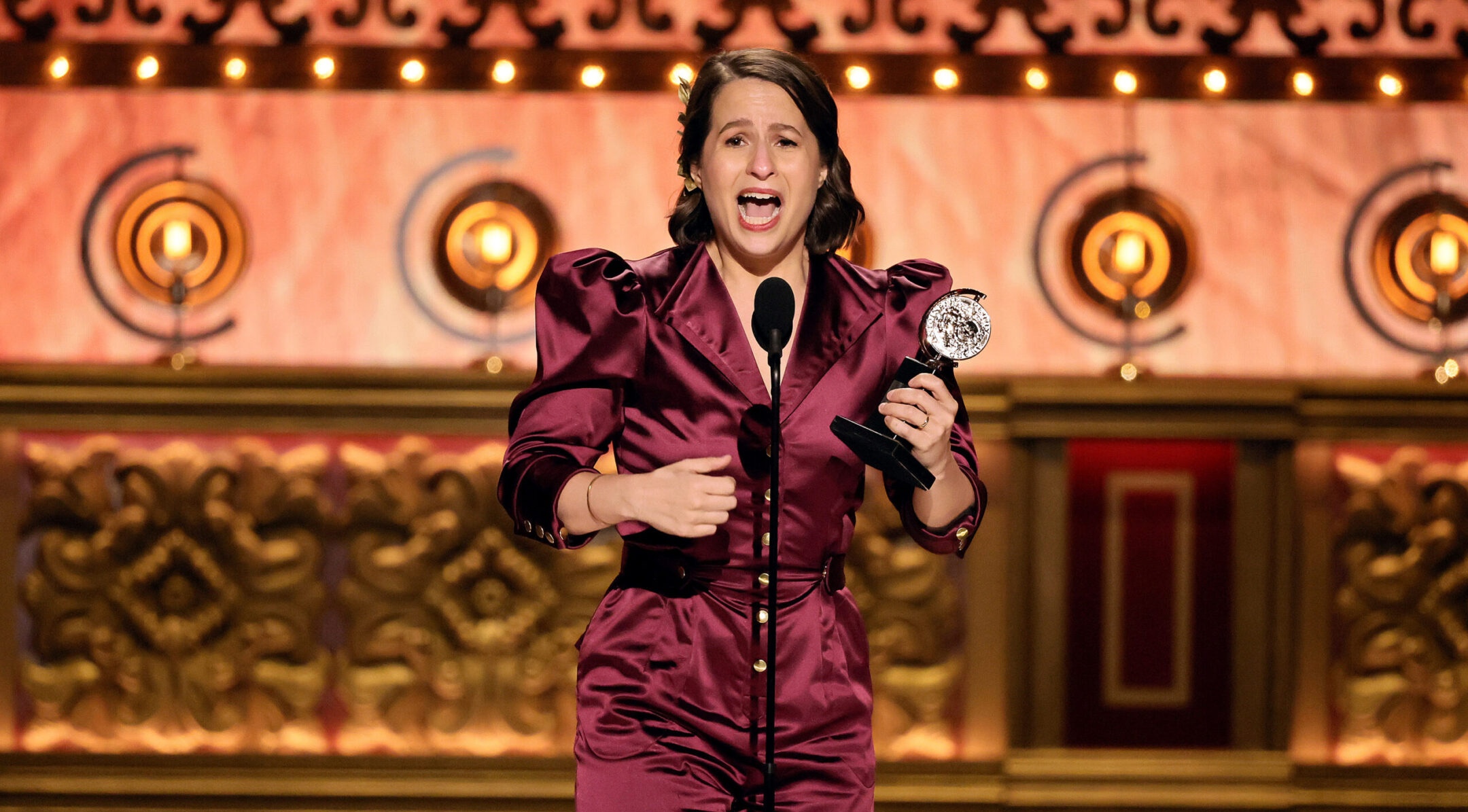To celebrate her second Tony of the night on Sunday, “Suffs” creator Shaina Taub turned to Jewish tradition.
Taub won awards for best book of a musical and best original score written for theater for the Broadway show about the women who fought to be able to vote in the United States. In her acceptance speech for the second award, she thanked her mentors and gave a shoutout to “all the theater kids out there.”
Then she quoted a Jewish text that she said had a prominent place in her show’s literature.
“The epigraph on my script is a quote from the Talmud: You are not obligated to complete the work, but neither are you free to abandon it,” said Taub, who also plays suffragist Alice Paul in the show. She added, “This is a hard year in our country, and I just hope that we can remember that when we organize and we come together we are capable of making real change and progress for this country for equality and justice. And so I hope we can all do that together.”
The famous quotation, from Rabbi Tarfon, is found in the canonical text of Jewish ethics, Pirkei Avot. It is part of the Mishna, the code of oral law that is at the core of the Talmud. The saying has animated legions of Jewish activists, from acolytes of the late liberal Supreme Court Justice Ruth Bader Ginsburg to the acting attorney general at the end of Donald Trump’s presidency, who have sought to battle against steep odds to make change.
Taub, who was raised in a Jewish family in Vermont where she said she had little access to Jewish community, first shared the text on Instagram on Oct. 27, 2018, after a white supremacist murdered 11 Jews in a Pittsburgh synagogue. There, she posted a meme that shows several lines from Jewish texts, including an exhortation to “do justly” that appears in the Bible.
“The only thing bigger than my rage toward these white supremacist cowards is my love for the Jewish community and all its allies,” she wrote at the time. “These words from the Talmud ground me in these times, so I offer them to you.”
Taub elaborated on her connection to the quotation in an interview with Hey Alma in 2021, at a time when the public launch of “Suffs” was on hold because of the pandemic.
“It’s part of the thesis of the show,” she said at the time. “So much of the language of activism is about this finality of finishing a struggle — never again, enough is enough, if not now, then when. But the fights and the struggles for equality and justice are never finished, and no generation really completes that work. It doesn’t mean you don’t still have to work and fight and organize as if you could finish it. It’s holding that contradiction in your head as an activist, and as any person working towards a better future.”
“Cabaret” and “Prayer for the French Republic,” two shows that include Jewish characters and stories, were shut out after being nominated for multiple awards.
Alex Edelman, the Jewish comedian, won a Special Tony in recognition of his one-man show about antisemitism and identity, “Just For Us,” that completed a Broadway run last year and is now streaming on HBO. When Edelman’s award was announced in May, Jason Laks, interim president of The Broadway League, said his show — about Edelman’s encounter with a group of white supremacists — was “as moving as it was hilarious and spoke to the power of communication, identity and empathy at a time when it is needed more than ever.”
In a video released on Sunday, Edelman related the themes of the show to the conflict in “Israel and Palestine.”
“Beyond being about neo-Nazis and antisemitism and Christmas,” he said, the show “grapples with a question, which is like, ‘what is our place in the world?’ And it feels like when I go see shows they’re all asking that question. … The idea of ‘Just For Us’ at its core it is about empathy. It’s about people sitting in a room, who disagree with each other in ways that are fundamental and profound, and trying to understand something about ourselves and those others.”
“Given what’s happening in the world right now, particularly in Israel and Palestine,” Edelman continued, and given that “every day, it feels like the differences between us and those that we disagree with are more and more fundamental, it is all the more necessary to find ways to do that.”
The New York Jewish Week brings you the stories behind the headlines, keeping you connected to Jewish life in New York. Help sustain the reporting you trust by donating today.





